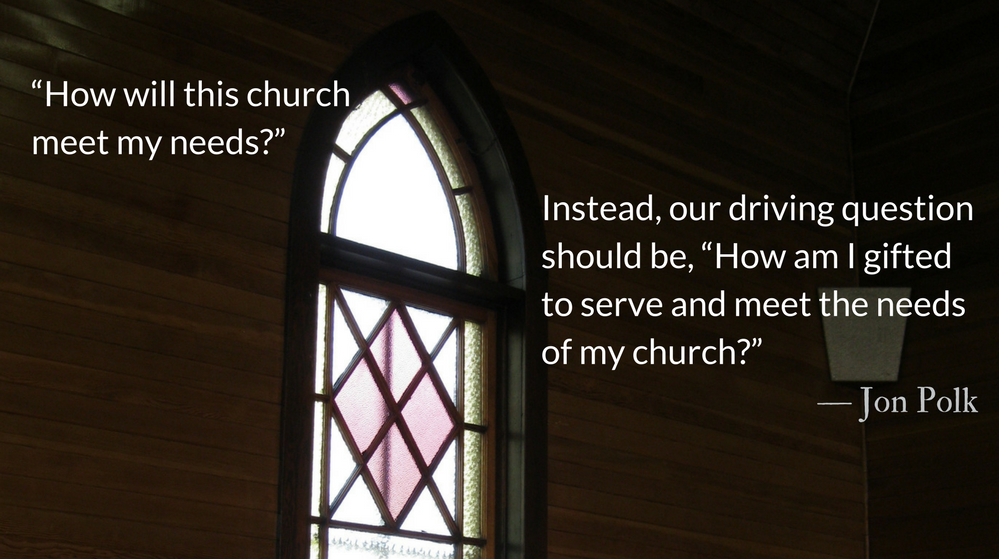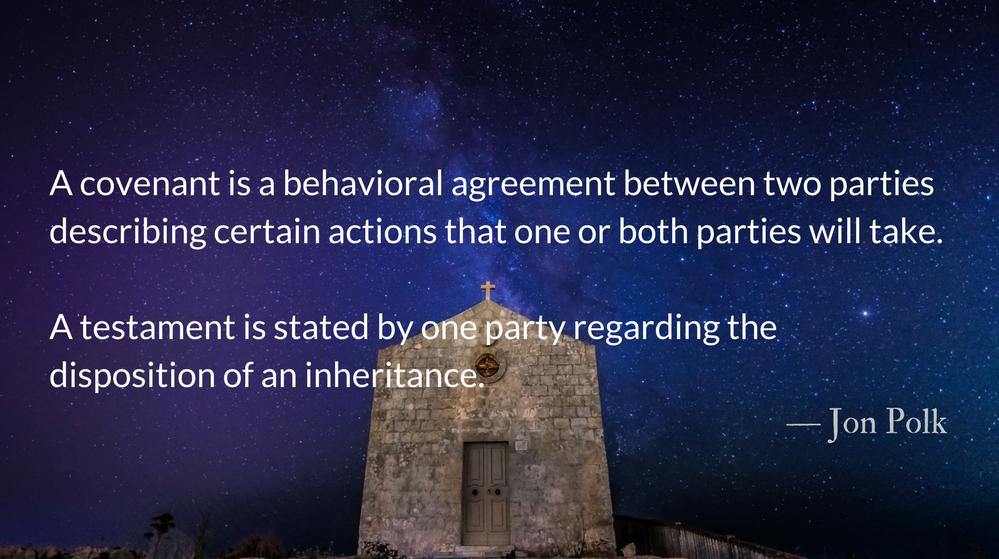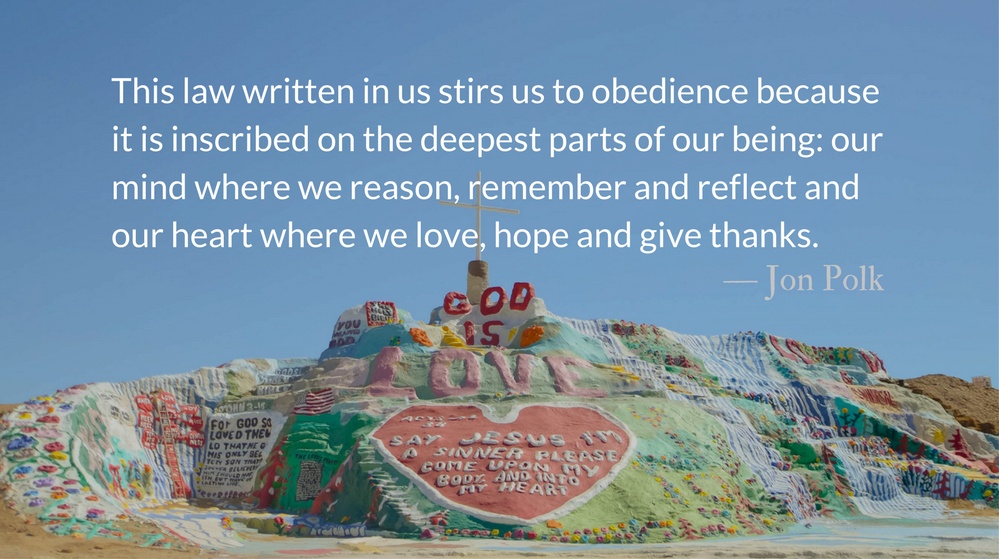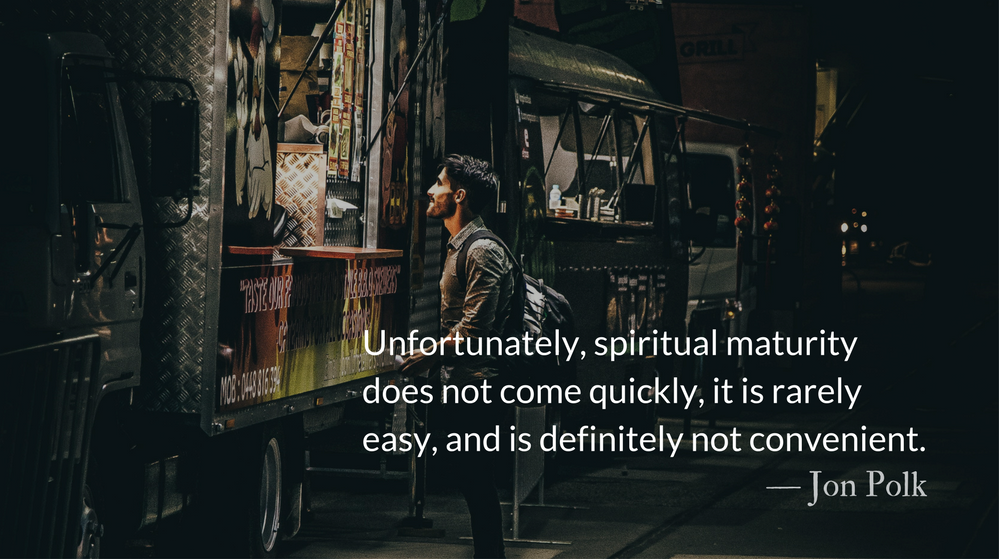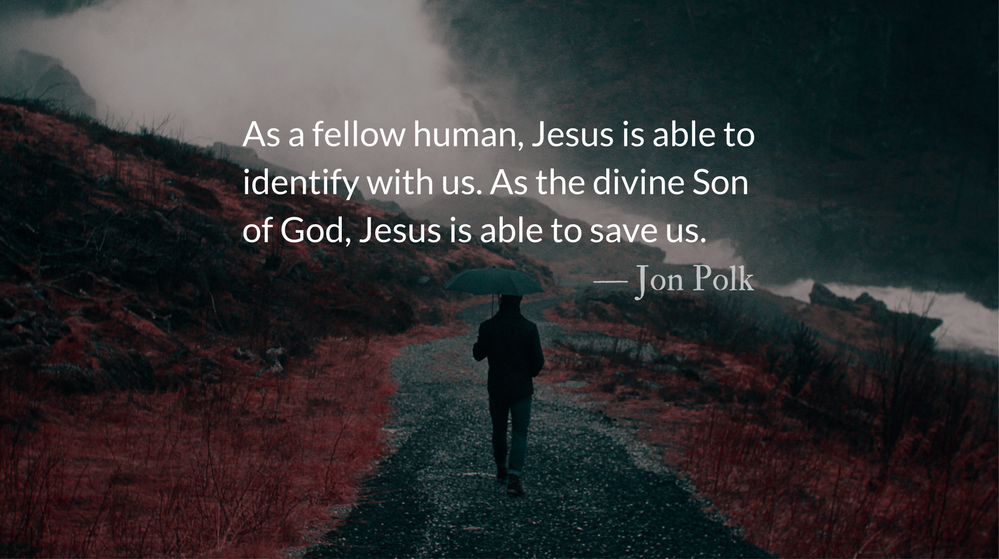Scripture: Hebrews 10.24-25
And let us consider how we may spur one another on toward love and good deeds, not giving up meeting together, as some are in the habit of doing, but encouraging one another—and all the more as you see the Day approaching.
Reflection: Compelled Toward Community
By Jon Polk
We have been made participants in a New Covenant of grace with God and we are beneficiaries of Christ’s inheritance of forgiveness. Along with these great gifts of love comes a great responsibility for us as God’s people.
God has forged with us and in us a new community of faith. Belonging to this community carries a responsibility to be accountable to each other.
Therefore, let us draw near to God. We have a High Priest in Jesus who has provided us with direct access to God. We have entered into a relationship with God through the death of his Son and we can enter God’s presence confidently. Our response should be to take advantage of this privilege through personal study and devotion and through public worship together.
Let us hold to the hope we profess. We have the promise from Jesus of assurance in faith and assistance in our time of need. We must lean forward into the future of our life in Christ and resist the temptation to lean back into our old lives of hopelessness.
Let us spur one another on toward love and good deeds. We have been given the gift of Christian community for our encouragement and edification. The Christian faith is not merely a personal, individual, internal exercise. It can only be truly lived in community. Even the concept of fellowship is more than simply socializing when we come together at church. True fellowship occurs when we encourage and build up our fellow believers.
Let us not give up meeting together. We have been given the gift of Christian community also as a place for service and ministry. In our consumer-driven culture, we often hear church seekers ask the question, “How will this church meet my needs?” Instead, our driving question should be, “How am I gifted to serve and meet the needs of my church?”
We are called to pursue a life of spiritual maturity and we are reminded that human infants in a physical sense require several things to grow and be healthy: nourishment, exercise and assistance. We receive our spiritual nourishment from God’s Word and exercise from service, but we cannot forget that we require assistance from one another to grow in Christ.
Let us not neglect our responsibility to love, care for, and encourage one another in the body of Christ called the Church.
The Refrain
Send forth your strength, O God; establish, O God, what you have wrought for us. — Psalm 68.28
– From The Divine Hours: Prayers for Autumn and Wintertime by Phyllis Tickle.
Full prayer available online and in print.
Today’s Readings
1 Chronicles 5-6 (Listen – 12:23)
Hebrews 10 (Listen – 5:33)

